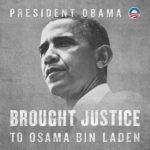The war in Afghanistan started with 9/11. At that time there was an uncomfortable feeling that this was going to be another protracted Vietnam.
The US has changed its strategies many times and is still hopeful of a victory which is quite far away. The commander of USFOR-A and NATO forces, General Dunford, Fighting Joe, is optimistic that the Afghan’s will be able to continue on their own after the US and NATO forces exit. 2014 is the hopeful deadline for the troops to pull out. The Qatar talks with the Taliban, seeing them in a future Afghanistan have reached a stalemate. Pakistan does not favour talks. Qatar backed by the US and Afghan government is seeking to get the Taliban to declare their separation from Al Qaida. Karzai is still seen as a stooge government of the US. The situation is complex and there is deepening distrust all around.
I wonder how the US-NATO forces can leave in 2014?
The reality is that they are fighting an insurgency and infusion of more troops hasn’t improved the situation. Improving civilian safety, empowerment programmes and even training and creating an Afghan police and army hasn’t helped much. If they were to exit, then by simple laws of survival of the fittest and if Afghanistan is left to itself, two power blocks are bound to emerge. One is definitely the Pakistan backed Afghan Taliban, Haqqani Network, Gulbuddin Hekmatyar’s Hezb-e-Islami and Mumbai attackers Lashkar-e-Taiba. The other being the Northern Alliance.
Between a bloody civil war and seeing hopes of the US bringing improvements in the quality of life, the Afghans have little choice. I feel their chances are better to go along with the US. The Afghan people need to be empowered to make their own choices. War-lord-ism isn’t going to guarantee immediate peace. Hitching their bandwagon to the US will guarantee some progress. By having a powerful international partner, however uncomfortable, there is bound to be some progress.
So what does the Afghan Taliban and the war lords want? What does Pakistan get by backing groups who have little chance of success after getting to power? The US and its allies siding up with one of these groups is also a possibility. In fact they had supported a jihad in the first place. The Qatar talks if and when held will definitely be progress.
The current reasons for the US to continue in Afghanistan can only be with the hope of partnering with whoever emerges as the leader. History will repeat itself, if not already done, in Afghanistan with infighting supported and funded by external influences. The US is in a better position to be the international partner, which it can be only if it relentlessly pursues its policies. Changes in strategy and policy are to be expected till a workable solution is arrived. At least they are better informed about Afghan society than when they came initially.
Pakistani politics is undergoing change with a move towards lesser military influence. I think the US has learnt its lessons of backing the right or wrong horse. The Raymond Davis (read the NY Times article here) incident revealed the similarity and conflicts between the operational alignments of the CIA and ISI. Further, the US intrusion into Abbotabad and the end of Osama bin Laden in Pakistani territory has not only revealed Pakistani duplicity it has also deepened the distrust between intelligence agencies.
Intelligence agencies need funding and ISI is seeing some crunch from the US. It however still has other sources and sympathisers. The radicalisation of Pakistan is somewhat evident. The concern for the common man on the street is to be or not be with some side. It follows a simple rule of having good relations with your immediate environment rather than some unknown God, till that God takes over the neighbourhood. There is no ideology or fundamentalism closer to the doorstep of power.
What do you think? Where is Afghanistan heading … have your say here.
Join the forum or leave comment.
the British would have had in their Afghan campaigns. I have not connection to it living in a different period of time except that the NWFP was where there was contact and conflict zone.
In a uni-polar must there be conflict over control and power to influence global events.?
Can we say that conflict is necessary and the ultimate answer to be in power? It is good for the economy … ? The arms industry flourishes and soldiering keeps youth gainfully employed. Civilian casualties are collateral damage. The world has been in constant conflict and very few regions can say that they never had any fighting.
The question is will an end to the Af-Pak campaign promise anything at all.







